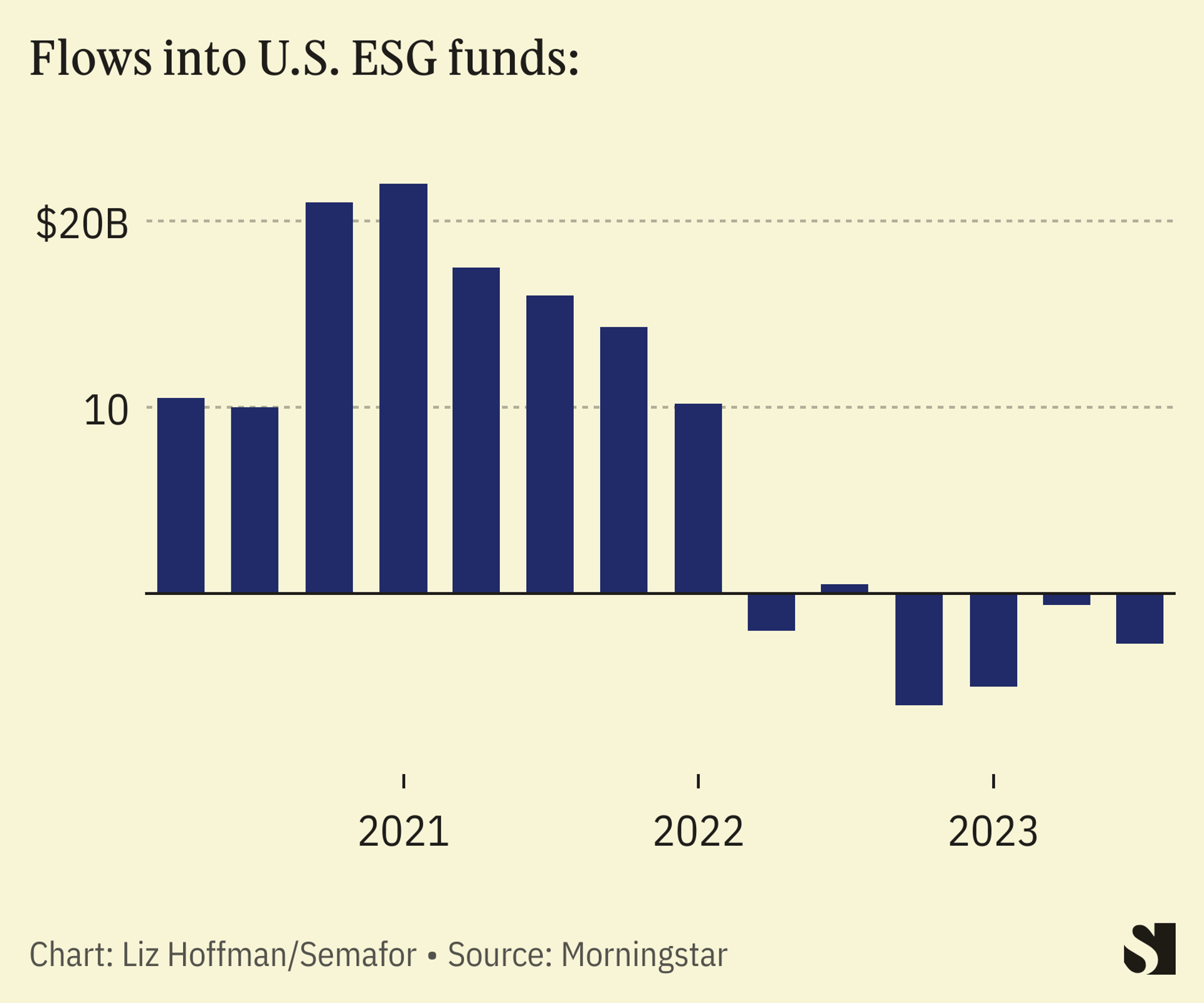The News
Business leaders are keeping a low profile regarding the new Middle East conflict after a decade of public CEO statements on hot-button issues.
So far, 57 of the S&P 500 companies have made a public statement about the attacks, according to Yale professor Jeffrey Sonnenfeld, who’s keeping a list. The relative quiet follows years of increasing expectations from employees, customers, and investors that business leaders take stances on social issues.
But it hits during a backlash to the broader ESG movement, which has seen shareholder support wane and investor dollars move elsewhere. And with a few exceptions — Salesforce and Walmart donated to Jewish groups, while Pfizer CEO Albert Bourla, the son of Holocaust survivors, wrote an unusually personal note — business leaders are staying out of it.

In this article:
Liz’s view
I keep seeing headlines about how the war between Israel and Gaza has put businesses and executives in a bind. But I’ve seen little evidence of it. Most have said nothing and haven’t been punished for it by employees, customers, or other constituencies demanding they take a stance. Neither have the few that vocally supported Israel.
When Mark Zuckerberg called the attacks “pure evil” and got a personal note of thanks from the Israeli government, no #DeleteFacebook hashtag went viral. There weren’t widespread protests outside JPMorgan branches after Jamie Dimon used the word “terrorism” or boycotts of Pfizer (not an uncontroversial company!) after Bourla wrote about Israelis killed “in cold blood.”
Starbucks has drawn criticism for its union-busting efforts but seemingly none from its decision to sue that same union over pro-Palestinian posts that used the company’s logo. And when McDonald’s restaurants in Israel donated free meals to Israeli soldiers, franchisees in Arab countries made some noise. But it’s been 10 days, a lifetime in outrage-land, and no storm has descended on Chicago.
In part, that’s because a plurality of Americans agree with them. The strongest supporters of Palestinians are college students not in the workforce, which explains why university presidents are facing heat where CEOs aren’t.
But vocal minorities have complicated life for CEOs before, and that’s not happening here. Almost nobody is asking business leaders what they think, and for once, most aren’t rushing to say, a notable departure from the reflexive virtue-signaling that’s become common in recent years. Crisis communications experts have been quick to highlight the pitfalls here — service providers seek to provide service, news at 11 — but most executives don’t need the help.
When I asked BlackRock executive Mark Wiedman earlier this month what lesson he’d learned from the anti-ESG backlash, he said “speak softly and invest money.” That sentiment increasingly describes how CEOs are approaching the public-facing part of their jobs.
The pandemic, the #MeToo movement and social-justice protests, and the broader conversations of the late 2010s about diversity and equity, pushed leaders to speak out. The early calls were easy: Sexual misconduct and harassment is bad, and saying so jibed nicely with corporate diversity efforts. Ditto for racism (though there was a noticeable falloff in corporate responses to George Floyd’s murder in 2020 and the spike in anti-Asian violence a year later).
Then there were issues that were thornier but legitimately required a corporate response, like deciding whether to pay for employees to receive abortions out of state. Closing operations in Russia had the benefit of being both morally unambiguous and relevant to day-to-day operations.
As the issues keep coming and are only getting thornier, many of them regret sticking their heads above the parapet in the first place.
Room for Disagreement
It might just be early days. The Washington Post reports that efforts at some companies to blacklist employees who’ve made statements in support of Palestinians is starting to force the hand of companies that have so far stayed silent.
“While many top executives made public statements in support of Israel following Hamas’s devastating Oct. 7 attack, some U.S. employees have begun to pressure management to make similar statements about Palestinian deaths following Israel’s bombing in Gaza,” the paper writes.
Notable
- Salesforce CEO Marc Benioff hasn’t been shy about weighing in on social issues. Here’s the company’s response to the attacks in Israel.
